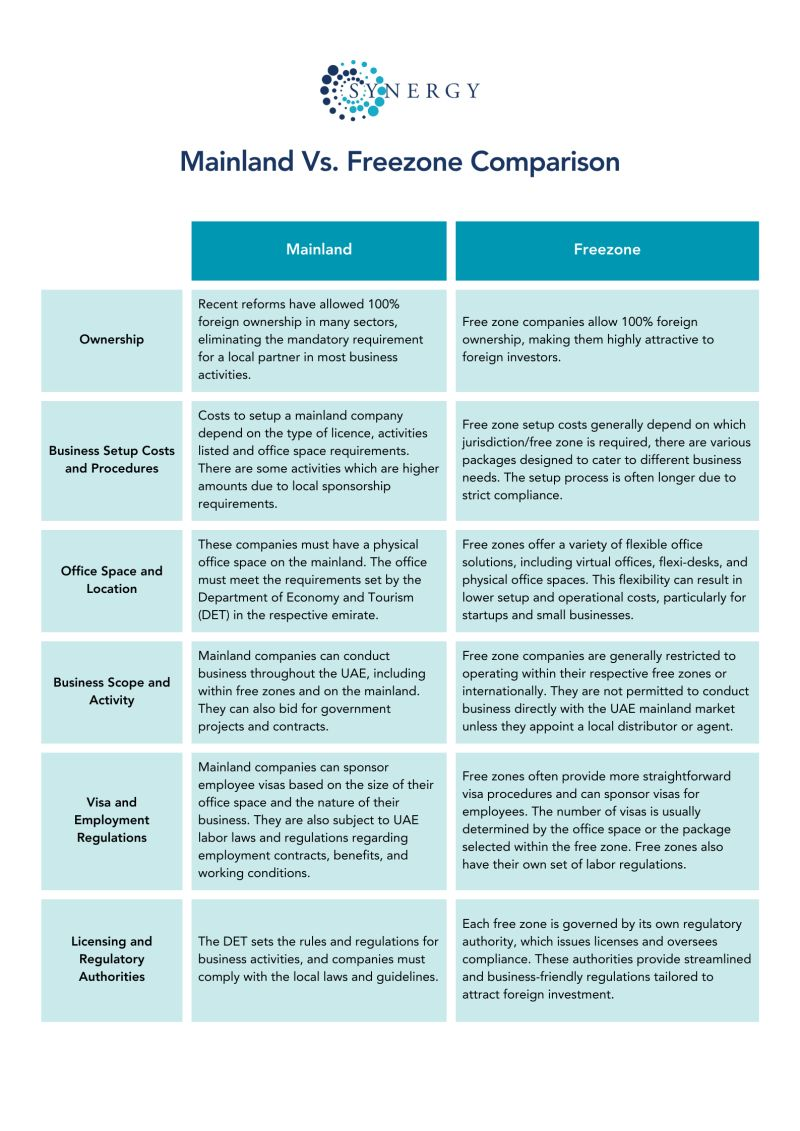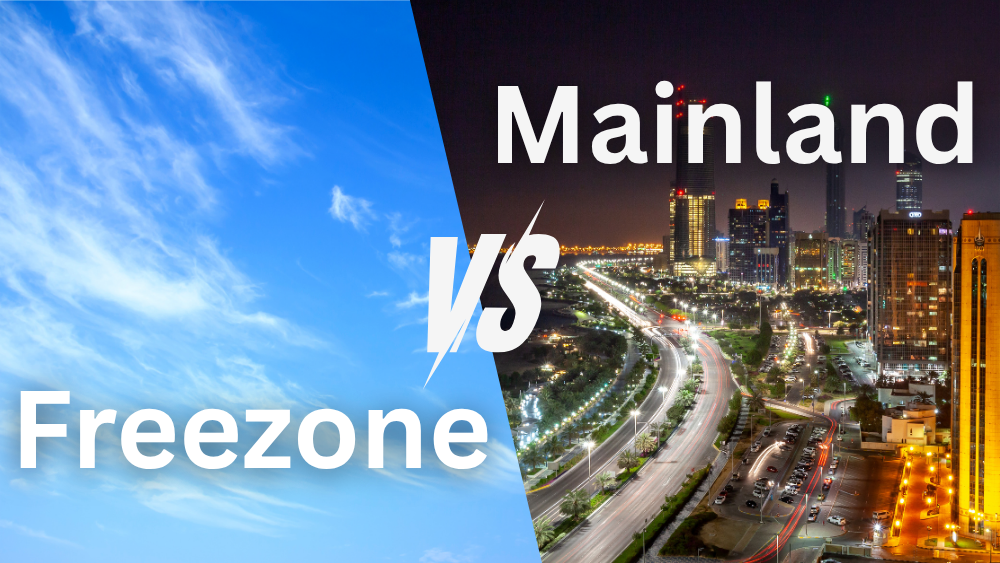From Free Zone to Mainland: Navigating the Right E-Commerce License in Dubai
As the UAE solidifies its position as one of the Middle East’s most dynamic online retail powerhouses, gaining the right e-commerce license in Dubai has become a foundational step for businesses aiming to tap into this high-growth market. Whether you’re an international brand looking to establish a local presence or a UAE-based entrepreneur launching your first digital storefront, the decision between setting up in a Free Zone versus the Mainland carries far-reaching implications for cost, compliance, and competitive advantage.
At Brick2Bytes, our mission as your e-commerce growth partner is simple: eliminate guesswork, reduce entry friction, and build a licensing foundation aligned with your business goals and market demands. This article demystifies the licensing landscape, walks through our proven framework, and helps you avoid pitfalls that can derail even the most promising ventures.

Why Your Licensing Decision Defines Online Success
The strategic choice of where and how to register your e-commerce business in Dubai is more than paperwork—it’s directly tied to your ability to sell on major platforms like Amazon.ae and Noon, manage logistics efficiently, and ensure customer trust via local fulfillment and payment options.
- Platform Access: Amazon MENA favors Mainland-licensed entities for sellers seeking end-to-end fulfillment and promotional access.
- Customer Expectations: 91% of UAE residents shop online, and local delivery with cash-on-delivery remains a dominant preference.
- Regulatory Readiness: Tailoring your e-commerce license in Dubai to match platform and VAT requirements can shave weeks off your operational timeline.
Ultimately, a strategically chosen license opens the doors for sustainable scalability in a $9.2 billion market that’s still gaining momentum. For insights into what’s fueling this growth, see our overview of the e-commerce boom in UAE.
The Brick2Bytes Licensing Framework
We’ve developed a practical, step-by-step blueprint to help founders and global brands structure their Dubai e-commerce setup correctly from day one.

Step 1: Define Commercial Objectives and Product Model
First, we help you map out your operational strategy. Are you selling tangible goods, dropshipping internationally, or offering a SaaS-based digital service? Are you managing inventory locally, warehousing cross-border, or trying a hybrid route?
Each model has different licensing implications. For instance, holding UAE-based inventory or participating in “Fulfilled By Amazon” generally necessitates a Mainland license. On the other hand, purely digital or export-only models may benefit from the tax-exempt advantages of Free Zones like Dubai CommerCity or DMCC.
Step 2: Select the Right Licensing Jurisdiction
The UAE offers dozens of Free Zones—but only a Mainland license from the Department of Economic Development (DED) allows unrestricted local trade and direct customer dealings. Key differences include:
- Setup Costs: Free Zones often advertise lower entry fees, but these might not include outsourced services or required agency sponsorships for B2C trade.
- Ownership Requirements: Some Free Zones allow 100% foreign ownership; most Mainland licenses now do as well, depending on the activity type.
- Local Bank Account Setup: Mainland businesses generally face fewer friction points when opening UAE business bank accounts.
Step 3: Align with Platform and Payment Gateway Requirements
Licensing isn’t just about legality—it directly impacts your e-commerce stack. For sellers using Amazon account management services or listing on Noon, a locally registered and verified trade license can determine eligibility for high-visibility features like Buy Box access, cash-on-delivery payments, and FBA enrollment.
Additionally, local gateway providers like PayTabs and Telr often require a UAE license and VAT registration before integration—particularly relevant for Shopify or WooCommerce store operators.
To understand how platform choice ties into licensing, our guide on Amazon.ae vs. Noon offers insights on which ecosystem might favor your business model.
Step 4: Build for Scalable Fulfillment and Logistics
A proper e-commerce license in Dubai determines whether you can legally contract local fulfillment partners or operate third-party logistics (3PL) within the country. Mainland operations gain benefits like:
- Fast, 1–2 day UAE-wide delivery via national couriers or FBA/Noon Express
- Eligibility for retail expansion through physical retail outlets
- Reduced customs costs compared to Free Zone-based cross-border sales
These factors have a direct influence on your product competitiveness, especially as local consumers show rising expectations for instant shipping and seamless returns—trends outlined in our analysis of UAE consumer behaviour.
Step 5: Protect Your Brand and Prepare for VAT
Before launching, your business name must be verified and registered. For compliance and credibility, we also coordinate VAT registration (currently at 5%) to ensure all invoices meet UAE tax authority standards.
This step is mission-critical for onboarding payment processors or listing on platforms like Noon, where non-compliance can prevent activation or lead to penalty fines.
Common Licensing Mistakes to Avoid
- Mistake #1: Choosing a Free Zone license based on cost, only to discover Amazon and Noon require Mainland credentials for core features.
- Mistake #2: Delaying VAT registration, which can stall integrations with gateways and marketplaces.
- Mistake #3: Ignoring customs clearance and fulfillment strategy—many Free Zone sellers overpay on every domestic sale, hurting margins and delivery SLAs.
These pitfalls highlight why license structure isn’t just a legal step, but a strategic pillar. For those specifically targeting Noon.com, our Noon Marketplace Management Services provide guidance rooted in platform-specific compliance and performance optimization.
Performance Starts with Proper Licensing
Beyond paperwork, the real returns come from operational efficiency and market accessibility. Businesses with tailored license setups consistently outperform their competition on key success indicators:
- Listing Acceptance Rate: Ensuring marketplace listings are approved without friction, validating regulatory alignment.
- Fulfillment Time: Achieving target delivery speeds of 1–2 days across the UAE using domestic logistics provisions.
- Conversion Rate: Capturing more sales from UAE visitors by offering trusted local payment options and fast shipping.
Taking Action: Start With Strategic Clarity
Whether you’re preparing your first launch or localizing an existing D2C setup, your licensing foundation determines your long-term viability. At Brick2Bytes, we go beyond compliance—we construct a licensing pathway that accelerates platform access, optimizes costs, and prepares your business for full-scale e-commerce success in the UAE.
For hands-on help in making the right choice between Free Zone and Mainland, book a free consultation with one of our specialists. If you have specific questions on your current structure or expansion plans, don’t hesitate to contact us directly.
The UAE e-commerce opportunity is massive—but it’s reserved for sellers who are ready to launch with precision, not trial-and-error.







